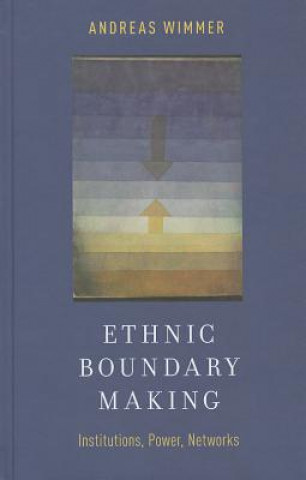
Delivery
Shopping guide





Doesn't suit? No problem! You can return within 30 days
 Gift voucher
any value
Gift voucher
any value
You won't go wrong with a gift voucher. The gift recipient can choose anything from our offer.
Ethnic Boundary Making
 English
English
 414 b
414 b
 Delivery to Austria
Delivery to Austria
30-day return policy
You might also be interested in


It is hard to avoid seeing ethnicity, race, or nationality wherever one looks. Differences in education, income, and health are often patterned along ethnic or racial lines. But how do we disentangle discrimmation and preferences for certain groups from the everyday working of labor markets and educational institutions or privileging family members or those with similar educational backgrounds? Drawing on a boundary-making perspective first championed by anthropologist Fredrick Barth, Andreas Wimmer introduces a new comparative theory of ethnicity. It explains precisely how and why ethnicity matters in certain societies and contexts but not in others, and why it is sometimes associated with inequality and exclusion, with political and public debate, with closely-held identity, while in other cases ethnicity, race and nationhood do not structure the allocation of resources, invite little political passion, and represent secondary aspects of individual identity. Wimmer argues that when ethnic and racial differences matter they matter because of institutional incentives, differences in power, and pre-existing social networks. Wimmer first provides a broad overview of different ethnic configurations around the world, outlines the new theory, and proposes a set of research designs based on non-ethnic units of observation. Next, he draws on these methods to demonstrate how the utility of the boundary-making approach through a qualitative study of immigrant ethnicity in Switzerland, a network analysis of racial and ethnic boundaries of U.S. college students on Facebook, and a statistical analysis of cultural values in the European Union.
About the book
 English
English
Categories


 Contact
Contact How to shop
How to shop



















